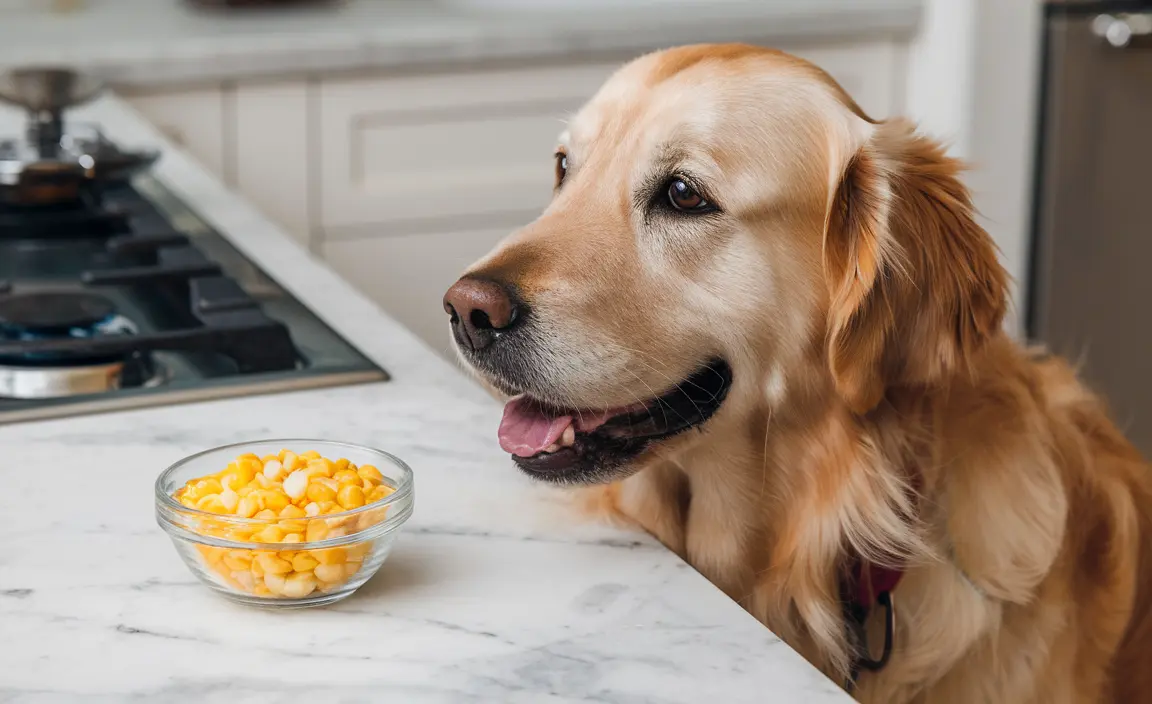Dog owners often wonder about the safety and nutritional value of various human foods for their furry companions. Corn, a common ingredient in many dog foods and human diets, is frequently a source of confusion and concern. Understanding how and when corn can be safely incorporated into a dog's diet is crucial for maintaining their health and well-being.
This comprehensive guide will explore the nutritional benefits, potential risks, and expert recommendations surrounding corn consumption for dogs, helping pet owners make informed dietary choices.
Nutritional Benefits of Corn for Dogs
Contrary to popular misconceptions, corn is far more than just a simple filler in dog food. It offers a range of essential nutrients that can contribute positively to a canine's diet. Corn provides a robust nutritional profile, including:
- Protein for muscle maintenance
- Carbohydrates for energy
- Fiber for digestive health
- Omega-6 fatty acids for skin and coat health
- Vitamins and minerals like lutein, zeaxanthin, and potassium
How Corn Supports Canine Health
The nutrient composition of corn makes it a valuable ingredient in balanced dog nutrition. Linoleic acid, an omega-6 fatty acid found in corn, supports healthy skin and a shiny coat. Carotenoids like lutein and zeaxanthin contribute to eye health, while various vitamins and minerals support overall metabolic functions.
Safe Corn Consumption Guidelines
While corn can be beneficial, proper preparation and moderation are key to ensuring your dog's safety. Here are essential guidelines for feeding corn to dogs:
Preparation Methods
- Always remove corn from the cob
- Serve plain, without butter, salt, or seasonings
- Cook or serve raw corn in small, manageable pieces
- Limit corn to less than 10% of daily caloric intake
What to Avoid
Certain corn preparations can be dangerous for dogs. Avoid:
- Corn on the cob (choking hazard)
- Canned or creamed corn with added ingredients
- High-salt or heavily seasoned corn products
- Excessive corn consumption
Understanding Corn Allergies and Sensitivities
While corn allergies are relatively rare, affecting approximately 4% of dogs, it's essential to monitor your pet for potential reactions. Symptoms of a corn allergy might include:
- Skin irritation
- Gastrointestinal upset
- Itching
- Ear infections
Identifying and Managing Corn Allergies
If you suspect your dog might have a corn allergy, consult with a veterinarian. They can perform tests and provide personalized dietary recommendations to ensure your dog's nutritional needs are met.
Expert Perspectives on Corn in Dog Nutrition
Veterinary nutritionists generally agree that corn, when served appropriately, is safe and can be a valuable component of a balanced dog diet. The key is moderation and understanding your individual dog's nutritional requirements.
Frequently Asked Questions
Is it safe for dogs to eat corn, and what forms of corn are best for them?
Yes, dogs can safely eat corn in moderation. Plain, cooked or raw corn kernels are best, always removed from the cob.
How much corn can I safely give my dog, and should it be part of their regular diet?
Corn should comprise less than 10% of your dog's daily caloric intake. While nutritious, it should not replace balanced, complete dog food.
What are the health benefits of feeding my dog corn, and how does it support their nutrition?
Corn provides protein, fiber, fatty acids, and essential vitamins that support overall health, skin, coat, and eye function.
Can dogs eat corn on the cob, or are there specific risks associated with it?
Dogs should never eat corn on the cob due to significant choking and intestinal blockage risks.
How common are corn allergies in dogs, and what symptoms should I look out for if my dog is allergic to corn?
Corn allergies are rare, affecting only about 4% of dogs. Watch for skin irritation, itching, and gastrointestinal issues.
Always consult with your veterinarian before making significant changes to your dog's diet, and monitor your pet's individual response to new foods.






